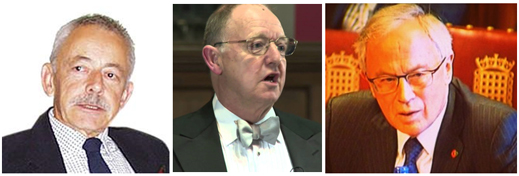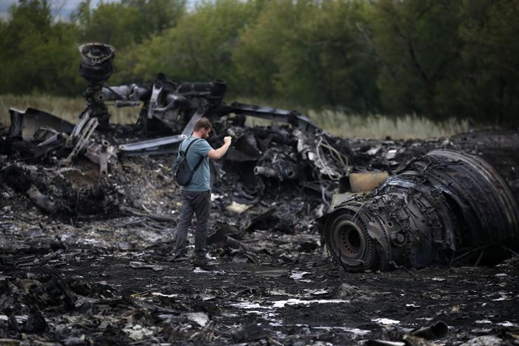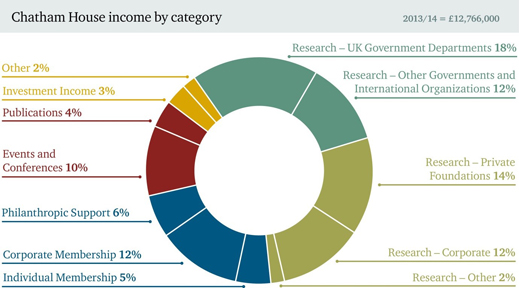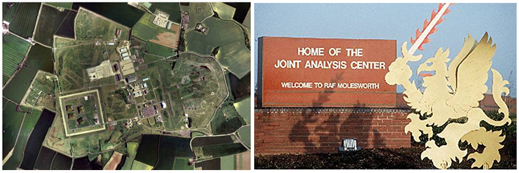Yves here. I’ve heard repeatedly from defenders of the government in Ukraine that one of the reasons they are not doing as well as they should is that Russia is waging a better propaganda war. I’ve even heard this from Americans who content that Russia is far better as social media campaigns and other avenues of perception management. During the height of the Cold War, the US worried about a missile gap against the USSR. It seems that a contemporary concern is a propaganda gap…..except, as this post demonstrates, Team Us never engages on propagandizing, only truth telling.
By John Helmer, the longest continuously serving foreign correspondent in Russia, and the only western journalist to direct his own bureau independent of single national or commercial ties. Helmer has also been a professor of political science, and an advisor to government heads in Greece, the United States, and Asia. He is the first and only member of a US presidential administration (Jimmy Carter) to establish himself in Russia. Originally published at Dances with Bears
The scaffolding is going up around the walls of Chatham House in London — we shall not see it dismantled again in our lifetime. Not even if the Royal Institute of International Affairs says it is doing no more than a repaint job.
According to a fresh report from inside the building, issued on June 4, it’s time to strike at Russia with “defensive strategic communications and media support…promoting truthful accounts of Western policies and values… through EU and NATO cooperation.”
In the City of London this is known as talking one’s book. On Madison Avenue, in New York City, it’s called advertising. Chatham House is applying for money for former British government officials to write reports to US, British and NATO intelligence agencies for the job of winning over, or neutralizing, those who are victims of Russian disinformation because they don’t believe what the US, British and NATO intelligence agencies have been telling them. The more incredible this proposition sounds, the more urgently Sir Roderic Lyne and Sir Andrew Wood and several other Chatham House apparatchiki say they need the money.
Entitled “The Russian Challenge”, the Chatham House report runs to 72 pages. Signing it as authors are six associates of the house — Keir Giles, Philip Hanson (below, left), Roderic Lyne (centre), James Nixey, James Sherr and Andrew Wood (right). Except for Nixey, the authors have held British government positions related to security, intelligence and war. Hanson says he served for a time at the US government radio, Radio Liberty. Lyne and Wood were British ambassadors to Russia between 1995 and 2004; they are also on retainer for companies doing business in Russia. Their report can be read here.

Propaganda – that’s to say, the word — appears twice, meaning what the Russian government claims. Thus: “Patriotism and propaganda may for a while obscure economic failure (Putin has taken to making Orwellian boasts: ‘Our produce is of course much better and healthier’ but they do not put bread on the table.” And: “The West should also explain its policies towards Russia, including of course those affecting Ukraine, to Russia’s post-Soviet neighbours – and to China. They deserve to hear directly how the West understands the position, and how Western countries propose to proceed. At the least, Russia’s propaganda effort needs to be balanced in this way.”
The word false appears six times. It’s a synonym for Russian. It refers to things Russians believe or do, or else want others to think they mean. For example: “By either undermining the will or support for deterrent measures, or creating an entirely false impression that Russia is justified in its actions, Russia adjusts key variables in the security calculus, reducing the risk inherent in any future assertive action against its neighbours”. And: “The current Kremlin may want to develop the false promise of a separate, self-sufficient and introverted Russia dominating the former Soviet space.” And: “As noted over the Russian interpretation of NATO’s intentions in Crimea, such false perceptions are nevertheless a reality to the Russian leadership.”
Truth, the word again, is much more frequent, appearing 12 times. It means what Chatham House authors say it is. For example: “[President Vladimir] Putin is a fundamentally anti-Western leader whose serial disregard for the truth has destroyed his credibility as a negotiating partner.” “Western societies put faith in their own independent media to arrive at and report the truth thanks to their relative freedom.” And: “while truth is supposed to be a fundamental requirement of Western communications strategies, Russian campaigns need not even remotely resemble the truth to be successful.”
The capstone of the case for Chatham House truth against Russian falsehood appears in this analysis of the transformation of Crimea in March 2014, followed by the destruction in eastern Ukraine of Malaysian Airlines flight MH17 on July 17, 2014. According to Keir Giles, “Western media organizations were entirely unprepared for a targeted and consistent hostile disinformation campaign organized and resourced at state level. The result was an initial startling success for the Russian approach in the early stages of operations in Crimea, where reports from journalists on the ground identifying Russian troops did not reach mainstream audiences because editors in their newsrooms were baffled by inexplicable Russian denials….A key example of this approach followed the downing of Malaysia Airlines Flight MH17. Four days after the crash, by which time it was already clear that Russia held ultimate responsibility for the tragedy, the Russian Ministry of Defence held a press conference to present explanations absolving Russia.231 The scenarios presented were diverse and mutually contradictory, and did not stand up to the briefest examination by experts with even basic knowledge of the aircraft and missile systems claimed to have been involved.232.” (See page 47.)

Read this again slowly: “four days after the crash…it was already clear that Russia held ultimate responsibility for the tragedy.”
In footnote number 232 evidence should have followed for readers to understand the expertise leading Chatham House to its conclusion so swiftly after the aircraft downing. But footnote 232 turns out to be a selfie. Giles is citing a 10-paragraph posting on the Chatham House website on July 24, 2014, by himself. This summarizes two widely publicized briefings by US and Russian intelligence, adding no evidence from another source, and concluding with the opinion: “The story of the crash presented by Russian domestic media is unrecognizable from what has been established as fact so far… In the case of Flight MH17, the truth is the last thing Moscow needs.” A box for feedback is provided, but it is empty.
In the war of truth against falsehood the case of MH17 is important. But Giles and Chatham House are saying the truth was “already clear” after they had investigated from their London headquarters for 96 hours. When asked to clarify his expertise and evidence Giles turns out to be less than clear. Chatham House reports Giles as starting his “career…in aviation in the early 1990s, working with Soviet military and paramilitary aircraft in Crimea.” The Chatham House spokesman says he doesn’t know if Giles had service rank nor in what organization he served.
Giles explains his involvement in Soviet military aircraft came through “a private company called Russ-Sky. I was its co-director.” When asked what organization engaged Russ-Sky, and to whose air force, Russian or Ukrainian, the aircraft belonged, Giles replied: “(1) none, and (2) neither! They still had Soviet stars and CCCP registrations.”
Russ-Sky is listed as having been founded on March 4, 1992, by Giles and Anthony Christopher Batchelaar. It later dissolved. According to Giles, he was working on military aircraft in Crimea before 1992, but he refuses to say if he was engaged by the Ukrainian air force or by someone else. He denies he was working with the Russian military command on Crimea.
Giles went on to be an analyst at the UK Defence Academy, reporting through the Joint Services Command and Staff College to military operations and intelligence units. His unit claims credit for “notable predictions…the succession of Vladimir Putin by Dmitriy Medvedev as Russian president, and the August 2008 war between Russia and Georgia.” When Giles’s unit was disbanded inside the UK government, the work was outsourced to his private consultancy called the Conflict Studies Research Centre.
In military recruitment it’s standard operating procedure for soldiers to be tested for their physical and cognitive capacities. Flat-footedness is a disqualifier, so is blindness. If a soldier was as clear-sighted as Giles claims to be on the MH17 crash, would his vision qualify him for combat? This isn’t an argument over what Giles says the causes were. It’s a diagnosis of the visibility of the evidence of what isn’t clear, almost a year after the event. For more of that, read this.
Chatham House is making the case that it is fit for service in information warfare against Russia. Intelligence analysts working for commercial due diligence companies in London say the Giles report is blind. A well-known London banker who has been asked to raise corporate money for Chatham House says the institution is discrediting itself on Russia. “It should stand above this sort of thing,” he adds.
The institutional motto at the close of “The Russian Challenge” is: “Independent thinking since 1920”. The date at the end is eccentric — how truthful is the adjective at the start? Independent of what?
In the UK and US tax codes, Chatham House is a charity. In the organization’s chart of its revenues, 30% comes from government and another 26% is paid by corporations with national affiliations. For the full list of names, click to open. The Russian Embassy in London is one of the listed members.

Source: http://www.chathamhouse.org
Just over half the income of the organization is raised for area or topic-specific research, producing reports like “The Russian Challenge”. Lyne is both a co-author of the report, and deputy chairman of the Chatham House Council; that makes him one of the senior executives in charge of governance, money-raising, and expenditure. Lyne is the only Russia hand on the organization’s executive.
Lyne has money-making ties of his own to Russia. He is a non-executive director of the goldminer, Petropavlovsk Plc, which pays him £92,000 per annum; he also supervises the remuneration of everyone else in the company. Lyne has been on the Petropavlovsk board, or its Aricom Plc predecessor, since 2006. Over that period the London Stock Exchange-listed company has dwindled in market value from more than £15 billion to less than £200 million today. The catastrophic loss of market confidence has been accompanied by a series of controversies which can be followed here. As a non-executive director ultimate responsibility isn’t Lyne’s. For an exercise in truth-telling which Lyne is endorsing at Chatham House, the Petropavlovsk prospectuses deserve close examination.
A review of UK and US nationals sitting on the boards of Russian corporations since the introduction of sanctions against Russia puts Lyne among several dozen who continue to demonstrate their, er independence of the sanctions policy. In his Chatham house report, Lyne says he’s in favour of “their duration as well as severity. Until the issue of the violation of Ukraine’s territorial integrity is fully addressed, sanctions should remain in place.”
For financing Chatham House’s Russia and Eurasia programme, several types of sponsors are identified on the website. Some subscribe to attend events to rub shoulders with those with whom they do business, or would like to do business. The heavier hitters, though, are George Soros’s Open Society; the RAF Molesworth airbase; the UK Foreign Office; five international oil companies; and AIG, the US insurance company. AIG’s record in the truth-telling department is more famous than most because it was investigated by the US Congress.
RAF Molesworth is an interesting sponsor for Chatham House to have in light of the Giles report’s evidence on what caused the MH17 crash. It sounds like an airbase, which once it was when the enemy was the Germans. Now the enemy is the Russians, and RAF Molesworth is a nonflying, warfighting branch of US and NATO intelligence.

Molesworth, according to the official literature, is home to three Major Command (MAJCOM) branch sites: the United States European Command (USEUCOM) Joint Intelligence Operations Center Europe Analytic Center (JAC), United States Africa Command (USAFRICOM) Intelligence and Knowledge Directorate-Molesworth (J2-M), North Atlantic Treaty Organization (NATO) Intelligence Fusion Centre (IFC). The role of the JAC is to process and analyse military information from a variety of sources for the benefit of the United States and NATO. The JAC reports to the Director of Intelligence (J2), Headquarters, United States European Command, in Stuttgart-Valhingen, Germany.
In January the BBC reported a Pentagon plan to end its RAF Molesworth lease and move communications and flight support units closer to the war fronts. It isn’t clear where the intelligence operations will be deployed next. For waging the good war, at a good price, Chatham House is reporting its hand is up.


It’s sure to be a success. When I see this story, I have to remember an earlier link posted on Naked Capitalism:
“The key is to exploit journalists’ incredible laziness. If you lay out the information just right, you can shape the story that emerges in the media almost like you were writing those stories yourself. In fact, that’s literally what you’re doing, since many reporters just copied and pasted our text.”
Certainly the Western European Powers are much more civilized, and the German taxpayer the great fodder on which that civilization is built. Even the US is in debt to them (along with China and Japan) for buying the bonds upon which the Pentagon’s superiority is built.
Mr. Oseba concluded, from the conspicuousness of military show, that every toiler in Europe carried a soldier on his back. And worse—he had to feed him, to clothe him, to pay him, and then to constantly submit to his insolence. From every home and fireside in Europe the most sturdy supporter, and the best loved one, was taken for target practice; and the burden imposed upon industry for showy barbarism, was crushing the whole of Europe and driving the people into revolution, anarchy and ruin.
“Tell us,” said the poetess Vauline, “are you speaking of the superior, the Christian or civilised peoples?”
“Rather,” said the Sage, “for only the Christian nations could enjoy, and only the superior nations could afford such heroic entertainments. As a fact, the size of the army and range of the gun are the true tests of a country’s civilisation and ‘superiority.’”
No shit. Please read the following from Russian expert Dr. Matthew Crosston (NEMESIS: Keeping Russia an Enemy through Cold War Pathologies. https://bellevue.academia.edu/MatthewCrosston/Peer-Reviewed-Published-Articles)
So the 1992 Ukrainian Constitution gave Crimea the legal constitutional right to independence within Ukraine, and the right to determine its own path and relations with others.
Please tell me why the managing editors at the NY Times, the Washington Post, and any other newspaper with an opinion don’t know this.
Either the White House and State Department are lying to us, or they don’t know this. If the latter, we are f**king lost as a nation. This is a disgrace, and unforgivable. This is the Ukrainian/Russian version of WMD in Iraq.
Speaking of a “leader whose serial disregard for the truth has destroyed his credibility as a negotiating partner,” I think we might point the finger here at GWB and Obama more than Putin. Obama’s serial disregard for the truth has been slightly more disguised than Bush Jr.’s, but no less egregious. One major lie that Obama has been keen to repeat, just like every other Prez, is that the US is “the indispensable nation,” that we are “exceptional.” If he meant “exceptional arrogant” or “exceptionally prone to violence,” he would be on to something. But he means that we are somehow innately superior to other nations, which is a lie so big that the mind reels at the sheer audacity of it and which “destroy[s] his credibility as a negotiating partner.”
All national elites lie. American, Russian, German, whatever: no exceptions. But there are situations when they have more to gain by speaking the truth, and Russia’s “propaganda” on Ukraine and the US-led coup is prime example. It’s effective because it’s the truth. The US/Western propaganda is ineffective because it produces too much cognitive dissonance among the populations. No amount of money thrown into more propaganda will change that.
BTW, I am waiting on the US to embark on media campaign against the Kiev junta for banning the LGBT parade in Kiev….
…right after they censure Saudi Arabia for oppressing women (and gays, and non-Saudis and the wrong kind of Saudis, etc.)
Amusing. It would be one thing if the “West” had not left such a wake of destruction in its path – for a century now… but it did. And it failed to even define its goal. It just staggered from one exploitable opportunity to another. So even Chatham House can’t paint over it. Russia isn’t perfect, but we’ve lost all credibility.
It’s clear to me that if there were any hard evidence of Russian or rebel Ukrainian involvement in the MH17 shootdown, Kerry and Obama would be crowing about it nonstop. And, as Dmitry Orlov waggishly put it, if Russia really intended to invade Ukraine there would be a white, blue and red flag flying over the Ukrainian Parliament building right now.
Putin attacks Kiev gay pride parade. Just getting a head start on the propaganda war.
Time to re-read John le Carré’s The Russia House
Also time to watch The Russians Are Coming, which local free tv saw fit to air after midnight last night – it’s a classic, and what propaganda there is in it is the good kind – you laugh and you cry that once upon a time our public was being fed this joyful romp – once upon a time the meanness and depravity and fear on both sides was being set aside in order to revel in simple human nonperfectability.
That’s propaganda at its best. And Putin still strives for it, as demonstrated in this newsclip:
http://rt.com/news/265399-putin-nato-europe-ukraine-italy/
Team USA engages in lots of propaganda!
The Smith-Mundt Act of 1948 and Foreign Relations Authorization Act of 1987, bills passed to protect U.S. audiences from our own government’s misinformation campaigns, were effectively repealed in 2013.
According to an article written by the late Michael Hastings in 2012, the U.S. spends about $4 billion annually on propaganda. In a USA Today article from the same year, I found a quote that the US spent about $202 Million on propaganda in Afghanistan alone.
The sh_”t runs deep and miasmic and opaque, and in service to whom and to what ends?
Interesting find in the borrowing library of a D.C. hotel I once stayed at: “The Cultural Cold War: The CIA and the World of Arts and Letters,” Frances Stonor Saunders (1990). Obfuscation, stratagems, smart people executing silly plans and idiocies. Every part of the arts and letters infected by what? “Pro-Americanism?” What the hekk does that even mean? Look what an Ivy League liberal-arts education will lead an Elitist supersecret club to, given entree and a black budget. Complexity for its own sake, and a career…
The point of this book is that after WWII, Western Europe was in danger of falling under the sway of the Soviet Union. Capitalism had been blamed for not only the worldwide depression, but both world wars, and socialism was seen by many as a more respectable alternative. As well, Russia had a respectable cultural heritage, while Americans were seen as gum-chewing cowboys. So keeping Western Europe in the free world was a huge task. If Ehrmann thinks a tiff between O’Brien and Camus is a bigger picture than this…well, words to describe the utter silliness of that escape me.
Of course the most important–and famous–policy towards that goal was the Marshall Plan. Keep Europeans from starving after the war, and rebuild their economies, and voila, they’re on our side. But there was a cultural war as well, and this is Saunders’ focus. The CIA of the time was an intriguing good old boy’s club, very much in the manner of the British intelligence service at the time, filled with highly educated, cultured, and well-bred folks (read John Le Carre’s novels and you’ll get a sense of the type). These people understood that cultural issues were important–as blue-blood Yankees they had been raised with a sense of noblesse oblige, and many of them came from families that had created the great art museums for the very purpose of bringing culture to the masses. (Seems insufferably elitist today, but that’s how it was.)
Notably, these early CIA folk had to fight against backwoods southern politicians who lacked their insight. While the politicians rejected the use of public funds to support anyone who was marginally to the left of the average southern reactionary, the CIA people recognized that including them in shows touring Europe served the purpose of boosting the U.S. over the Soviet Union.
First, avant garde work such as the abstract expressionists (condemned by one politician as being coded maps to such sensitive U.S. sites as Hoover Dam) contrasted well with the restricted formalism of socialist realism, highlighting America’s cultural vitality. Second, by including left-leaning artists, it showed (perhaps not entirely truthfully) that America was big enough, strong enough, and free enough to allow dissidents to operate freely, also in strong contrast to the ideological restrictiveness of the Soviet Union. http://www.amazon.com/gp/product/1565846648?ie=UTF8&isInIframe=1&n=283155&redirect=true&ref_=dp_proddesc_0&s=books&showDetailProductDesc=1#iframe-wrapper
Amerikanskii ne kulturny: http://www.urbandictionary.com/define.php?term=nekulturny
And then there’s this: “America’s Orwellian Liberalism,” http://www.crisismagazine.com/2011/americas-orwellian-liberalism
“Oh, wonder! How many goodly creatures are there here! How beauteous mankind is! O brave new world,. That has such people in ‘t!”
troof is immutable, groaf is the plan, jawbs will bite you in the ass every time
Regarding this subject I (just an ordinary pleb, not a troll) cannot resist quoting Marcus Aurelius from eighteen hundred years ago: All we see is perception, not the truth. All we hear is opinion, not fact. Our masters on both sides should not underestimate the appetite of the plebs for an alternative viewpoint, wherever it comes from.
Yesterday Putin said “the West has nothing to fear from Russia”. Ah but there’s the rub: how would the West justify ever-expanding Permanent War, on all fronts, without a nice scary Boogie-Man to have people scurrying under their beds and handing a fat taxpayer check to the MIC? What is NATO for, these days, anyway?
Must…find…new…enemy. These people are masters of the public mood, they can tell people are weary of some of the other Wars: the War on Drugs, the War on Islam, The War on Christmas still gets some of them going…but the Real Prize would be if the War on Russia and the War on China really took hold. Let’s be clear: this is about *money*, when the US Navy wants more billions for a useless electro-magnetic rail gun, it helps alot if the chump writing the check is scared silly. That way you can get them to ignore the Third World airports, highways and bridges, the fact we’re behind Bulgaria in math and science, that we’re 24th in infant mortality, or that 50% of public school students are below the poverty line. 2 million homeless students can’t hold a candle to scary foreign enemies who don’t even speak English fer chrissakes…Boo! Now fork over the cash, we got space weapons to build!